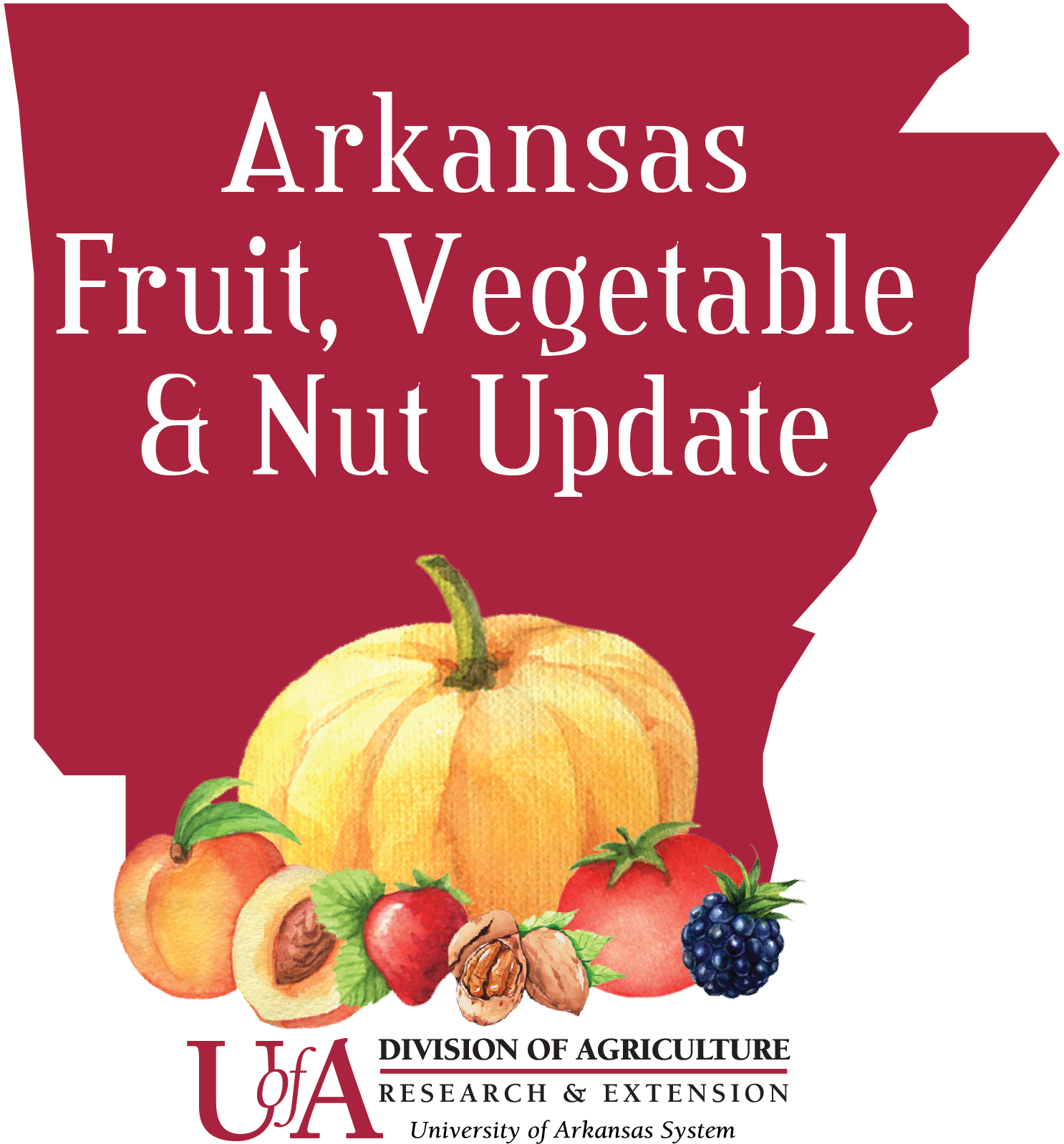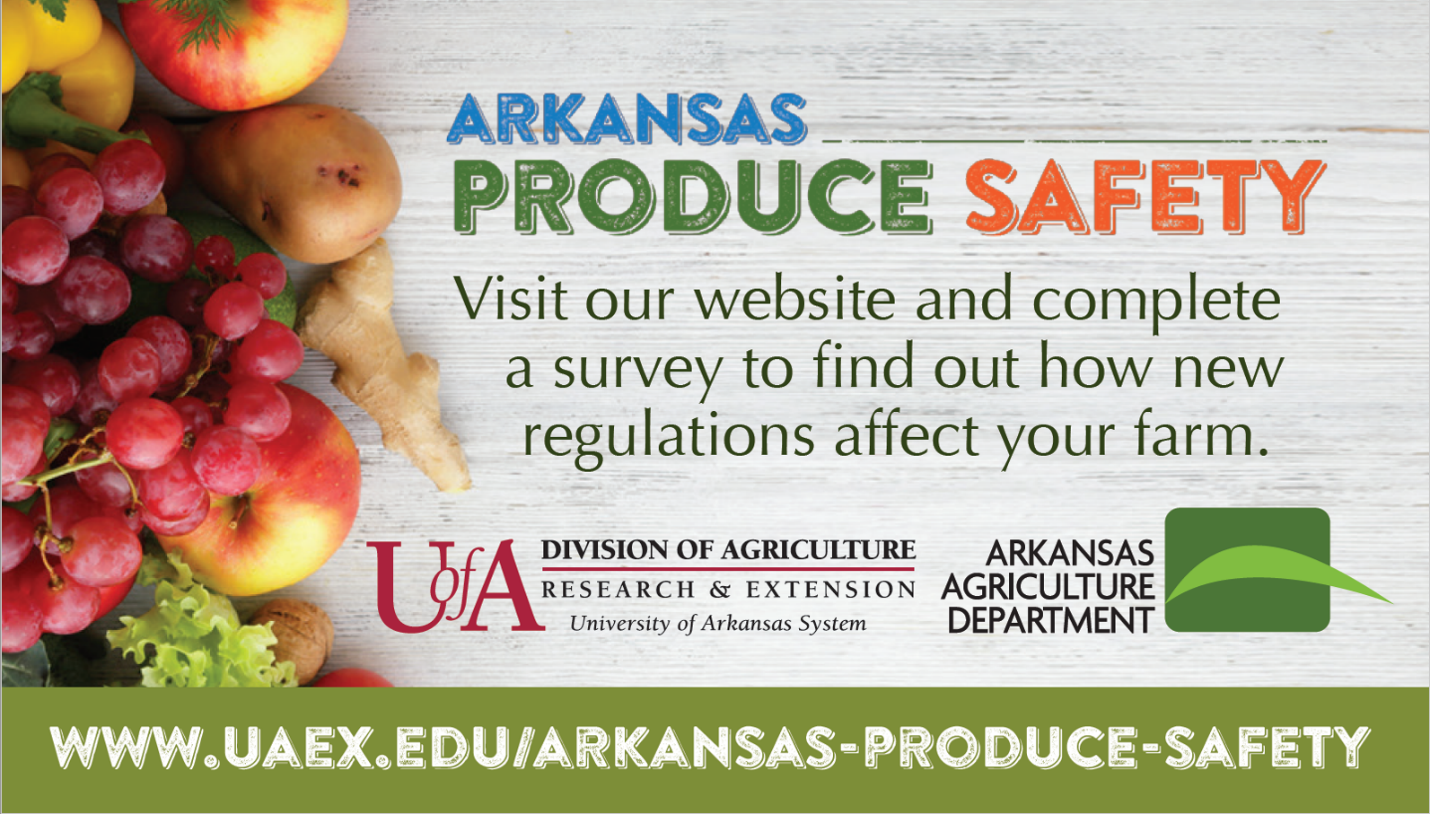
New Federal Food Safety Rules! AR Extension Service will deliver Food Safety Training in Nov, Dec, and Jan to prepare fruit and veggie growers

The Food Safety Modernization Act, or FSMA, meant to strengthen safeguards in the U.S. food supply, has a new rule for produce growers and the Cooperative Extension Service will be helping Arkansas farmers obtain needed certification.
Dr. Amanda Philyaw Perez, assistant professor for the University of Arkansas System Division of Agriculture, will spearhead the outreach for the Cooperative Extension Service as its produce safety educator. Outreach begins in November.
“The overall Food Modernization Safety Act may represent change in the way producers run their operations,” she said. “The new regulations are meant to shift from reacting to outbreaks of food-borne illness to preventing them.”
“My job will be teaching Arkansas producers about the requirements and how to obtain
certification and to meet the goals of this act, specifically the Produce Safety Rule,”
Dr. Perez said.
Controls where possible
On farms, in the outdoors, there are many factors that cannot be controlled. However, the new regulations and the training that goes with the implementation will focus on educating growers about good agricultural practices that may help to prevent contamination common to most farming environments.
For example, standards have been proposed for agricultural water, farm worker hygiene or cleanliness, compost and sanitation conditions affecting buildings, equipment, and tools.
Produce growers with annual sales of more than $500,000 of any food must comply with the rule by Jan. 26, 2018. Those with sales between $250,000 - $500,000 must be compliant by 2019. Producers with sales between $25,000 - $250,000 must be compliant by 2020.
There are exemptions, including produce grown for personal or on-farm consumption, produce not consumed raw, produce that receives commercial process to reduce pathogens, items on the “rarely consumed raw” list, including okra, peanuts, pecans, chickpeas and sweet potatoes.
Most producers must participate in training, but even those farms that meet criteria for exemption may want to participate to learn about practices, ease consumers concerns, and prepare in advance if exemption status were to change.
Even if farmers were certified or audited Good Agricultural Practices and/or Good Handling Practices, they must still attend a Produce Safety Alliance grower training if the farm is not exempt, Dr. Perez said.
“While the GAP/GHP requirements are similar to the Produce Safety Alliance grower training, qualified farms must meet the requirements for completing a one-day PSA training,” she said. This includes implementing practices outlined in the training and undergoing an Arkansas Plant Board Inspection.”
Training locations and dates are listed below. You must register to be able to attend one of these workshops. Please visit our website for registration: www.uaex.uada.edu/arkansas-produce-safety
- Nov. 7: Central – Little Rock at 4-H Center
- Dec. 6: Eastern – Forrest City at East Arkansas Community College
- Dec. 11: Northwest – Fayetteville at Don Tyson Ag Science Center
- Jan. 9: Southeast – Monticello at UA Monticello
- Jan. 16: Southwest – Hope at SWREC
A survey is available to help producers and processors determine how their farms will be affected by the Produce Safety Rule. Visit the website to complete the survey or for more information about the Produce Safety Rule, www.uaex.uada.edu/arkansas-produce-safety, or contact Dr. Perez at aperez@uada.edu.